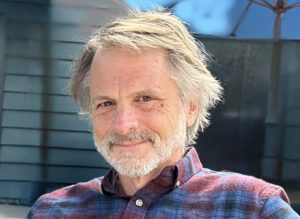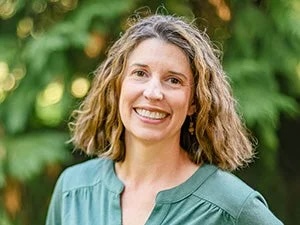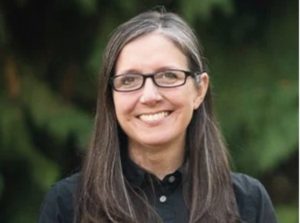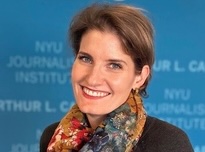skip to Main Content
BRENT WALTH
Director and Co-Founder
 Brent is an associate professor at the University of Oregon School of Journalism and Communication, a UO alum, and a Pulitzer Prize-winning investigative reporter with more than 30 years of experience as a journalist. Brent has worked as a staff writer and the managing editor for Willamette Week, as Oregon State Capitol correspondent for the Eugene Register-Guard, and as a Washington, DC correspondent and senior investigative reporter for The Oregonian. He is also the author of Fire at Eden’s Gate: Tom McCall and the Oregon Story, a portrait of the state’s most influential governor. He holds a master of fine arts degree from Warren Wilson College. As Catalyst director, Brent leads the effort to coach students as they pitch, report, write and publish their stories.
Brent is an associate professor at the University of Oregon School of Journalism and Communication, a UO alum, and a Pulitzer Prize-winning investigative reporter with more than 30 years of experience as a journalist. Brent has worked as a staff writer and the managing editor for Willamette Week, as Oregon State Capitol correspondent for the Eugene Register-Guard, and as a Washington, DC correspondent and senior investigative reporter for The Oregonian. He is also the author of Fire at Eden’s Gate: Tom McCall and the Oregon Story, a portrait of the state’s most influential governor. He holds a master of fine arts degree from Warren Wilson College. As Catalyst director, Brent leads the effort to coach students as they pitch, report, write and publish their stories.
Karen McIntyre
Distinguished Researcher and Associate Editor
 Karen is a leading researcher in the field of solutions—and constructive—journalism. She introduced the term constructive journalism to the academic literature in her 2015 dissertation and has since published numerous studies investigating the processes and effects of these emerging approaches, which aim to create more productive news stories that contribute to society’s well-being. She is co-editor (with Nicole Smith Dahmen) of Reporting Beyond the Problem: From Civic Journalism to Solutions Journalism (Peter Lang, 2021). Karen worked as a print and online journalist before entering academia. She joined the University of Oregon School of Journalism and Communication in 2024. Before that, Karen worked as an associate professor and director of graduate studies at Virginia Commonwealth University.
Karen is a leading researcher in the field of solutions—and constructive—journalism. She introduced the term constructive journalism to the academic literature in her 2015 dissertation and has since published numerous studies investigating the processes and effects of these emerging approaches, which aim to create more productive news stories that contribute to society’s well-being. She is co-editor (with Nicole Smith Dahmen) of Reporting Beyond the Problem: From Civic Journalism to Solutions Journalism (Peter Lang, 2021). Karen worked as a print and online journalist before entering academia. She joined the University of Oregon School of Journalism and Communication in 2024. Before that, Karen worked as an associate professor and director of graduate studies at Virginia Commonwealth University.
Nicole dahmen
Co-Founder and Research Director
 Nicole is a professor at the University of Oregon Clark Honors College and the School of Journalism and Communication. She’s earned a national and international reputation for her scholarship and expertise in visual journalism, ethics, and contextual reporting. Her research seeks to advance public-interest journalism that holds the powerful accountable, elevates underrepresented voices, and makes a positive impact in society. She is co-editor (with Karen McIntyre) of Reporting Beyond the Problem: From Civic Journalism to Solutions Journalism (Peter Lang, 2021), an in-depth examination of socially-responsible news reporting practices. In 2021, Nicole received the 2021 Scripps Howard Teacher of the Year Award, a national honor. She holds a Ph.D. from the University of North Carolina at Chapel Hill.
Nicole is a professor at the University of Oregon Clark Honors College and the School of Journalism and Communication. She’s earned a national and international reputation for her scholarship and expertise in visual journalism, ethics, and contextual reporting. Her research seeks to advance public-interest journalism that holds the powerful accountable, elevates underrepresented voices, and makes a positive impact in society. She is co-editor (with Karen McIntyre) of Reporting Beyond the Problem: From Civic Journalism to Solutions Journalism (Peter Lang, 2021), an in-depth examination of socially-responsible news reporting practices. In 2021, Nicole received the 2021 Scripps Howard Teacher of the Year Award, a national honor. She holds a Ph.D. from the University of North Carolina at Chapel Hill.
KATHRYN THIER
Co-Founder
 Kathryn is a Postdoctoral Research Fellow in the Center for Climate Change Communication at George Mason University, where she focuses on how the emerging practice of solutions journalism can promote pro-social outcomes, particularly in addressing climate change and other health issues. Kathryn has worked as a journalist for Newsday and The Charlotte Observer, and as an instructor at the University of Oregon School of Journalism and Communication. Kathryn is a leading expert in solutions journalism education, teaching the first-ever solutions reporting course and leading the Solutions Journalism Educators Academy. She holds a PhD in Communication from the University of Maryland.
Kathryn is a Postdoctoral Research Fellow in the Center for Climate Change Communication at George Mason University, where she focuses on how the emerging practice of solutions journalism can promote pro-social outcomes, particularly in addressing climate change and other health issues. Kathryn has worked as a journalist for Newsday and The Charlotte Observer, and as an instructor at the University of Oregon School of Journalism and Communication. Kathryn is a leading expert in solutions journalism education, teaching the first-ever solutions reporting course and leading the Solutions Journalism Educators Academy. She holds a PhD in Communication from the University of Maryland.
 Brent is an associate professor at the University of Oregon School of Journalism and Communication, a UO alum, and a Pulitzer Prize-winning investigative reporter with more than 30 years of experience as a journalist. Brent has worked as a staff writer and the managing editor for Willamette Week, as Oregon State Capitol correspondent for the Eugene Register-Guard, and as a Washington, DC correspondent and senior investigative reporter for The Oregonian. He is also the author of Fire at Eden’s Gate: Tom McCall and the Oregon Story, a portrait of the state’s most influential governor. He holds a master of fine arts degree from Warren Wilson College. As Catalyst director, Brent leads the effort to coach students as they pitch, report, write and publish their stories.
Brent is an associate professor at the University of Oregon School of Journalism and Communication, a UO alum, and a Pulitzer Prize-winning investigative reporter with more than 30 years of experience as a journalist. Brent has worked as a staff writer and the managing editor for Willamette Week, as Oregon State Capitol correspondent for the Eugene Register-Guard, and as a Washington, DC correspondent and senior investigative reporter for The Oregonian. He is also the author of Fire at Eden’s Gate: Tom McCall and the Oregon Story, a portrait of the state’s most influential governor. He holds a master of fine arts degree from Warren Wilson College. As Catalyst director, Brent leads the effort to coach students as they pitch, report, write and publish their stories. Karen is a leading researcher in the field of solutions—and constructive—journalism. She introduced the term constructive journalism to the academic literature in her 2015 dissertation and has since published numerous studies investigating the processes and effects of these emerging approaches, which aim to create more productive news stories that contribute to society’s well-being. She is co-editor (with Nicole Smith Dahmen) of Reporting Beyond the Problem: From Civic Journalism to Solutions Journalism (Peter Lang, 2021). Karen worked as a print and online journalist before entering academia. She joined the University of Oregon School of Journalism and Communication in 2024. Before that, Karen worked as an associate professor and director of graduate studies at Virginia Commonwealth University.
Karen is a leading researcher in the field of solutions—and constructive—journalism. She introduced the term constructive journalism to the academic literature in her 2015 dissertation and has since published numerous studies investigating the processes and effects of these emerging approaches, which aim to create more productive news stories that contribute to society’s well-being. She is co-editor (with Nicole Smith Dahmen) of Reporting Beyond the Problem: From Civic Journalism to Solutions Journalism (Peter Lang, 2021). Karen worked as a print and online journalist before entering academia. She joined the University of Oregon School of Journalism and Communication in 2024. Before that, Karen worked as an associate professor and director of graduate studies at Virginia Commonwealth University. Nicole is a professor at the University of Oregon Clark Honors College and the School of Journalism and Communication. She’s earned a national and international reputation for her scholarship and expertise in visual journalism, ethics, and contextual reporting. Her research seeks to advance public-interest journalism that holds the powerful accountable, elevates underrepresented voices, and makes a positive impact in society. She is co-editor (with Karen McIntyre) of Reporting Beyond the Problem: From Civic Journalism to Solutions Journalism (Peter Lang, 2021), an in-depth examination of socially-responsible news reporting practices. In 2021, Nicole received the 2021 Scripps Howard Teacher of the Year Award, a national honor. She holds a Ph.D. from the University of North Carolina at Chapel Hill.
Nicole is a professor at the University of Oregon Clark Honors College and the School of Journalism and Communication. She’s earned a national and international reputation for her scholarship and expertise in visual journalism, ethics, and contextual reporting. Her research seeks to advance public-interest journalism that holds the powerful accountable, elevates underrepresented voices, and makes a positive impact in society. She is co-editor (with Karen McIntyre) of Reporting Beyond the Problem: From Civic Journalism to Solutions Journalism (Peter Lang, 2021), an in-depth examination of socially-responsible news reporting practices. In 2021, Nicole received the 2021 Scripps Howard Teacher of the Year Award, a national honor. She holds a Ph.D. from the University of North Carolina at Chapel Hill. Kathryn is a Postdoctoral Research Fellow in the Center for Climate Change Communication at George Mason University, where she focuses on how the emerging practice of solutions journalism can promote pro-social outcomes, particularly in addressing climate change and other health issues. Kathryn has worked as a journalist for Newsday and The Charlotte Observer, and as an instructor at the University of Oregon School of Journalism and Communication. Kathryn is a leading expert in solutions journalism education, teaching the first-ever solutions reporting course and leading the Solutions Journalism Educators Academy. She holds a PhD in Communication from the University of Maryland.
Kathryn is a Postdoctoral Research Fellow in the Center for Climate Change Communication at George Mason University, where she focuses on how the emerging practice of solutions journalism can promote pro-social outcomes, particularly in addressing climate change and other health issues. Kathryn has worked as a journalist for Newsday and The Charlotte Observer, and as an instructor at the University of Oregon School of Journalism and Communication. Kathryn is a leading expert in solutions journalism education, teaching the first-ever solutions reporting course and leading the Solutions Journalism Educators Academy. She holds a PhD in Communication from the University of Maryland.